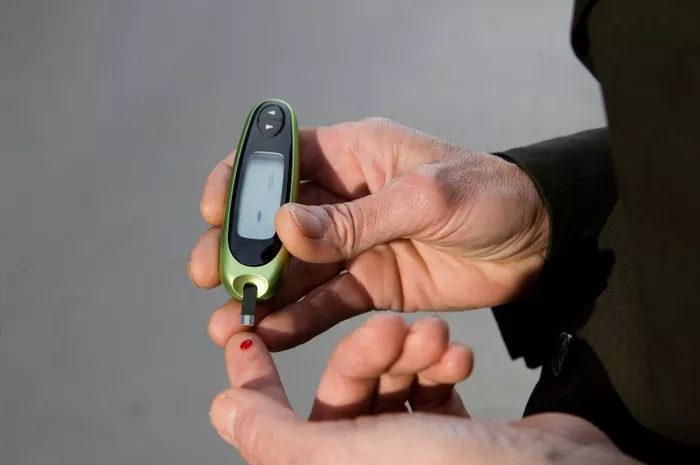Hyperglycemia, the elevation of blood glucose levels beyond normal limits, is a critical concern in the management of diabetes mellitus. While it is commonly associated with conditions such as poor diet and lack of physical activity in diabetic patients, another significant contributor is stress-induced hyperglycemia. This phenomenon, where stress triggers a rise in blood glucose levels even in individuals without diabetes, presents unique challenges in both clinical and research settings.
The Physiology of Stress and Glucose Regulation
To comprehend stress-induced hyperglycemia, it is essential to delve into the intricate interplay between stress and glucose regulation within the human body. Stress, defined as the physiological response to perceived threats or challenges, initiates a cascade of hormonal and neurological reactions. Central to this response are the activation of the sympathetic nervous system and the secretion of stress hormones such as cortisol, epinephrine, and norepinephrine.
Role of Stress Hormones
Cortisol, often termed the “stress hormone,” plays a pivotal role in stress-induced hyperglycemia. It promotes gluconeogenesis, the synthesis of glucose from non-carbohydrate sources like amino acids and glycerol, thereby increasing blood glucose levels. Epinephrine and norepinephrine, released from the adrenal glands in response to stress, enhance hepatic glycogenolysis and reduce peripheral glucose uptake, further contributing to elevated blood glucose levels.
Clinical Relevance of Stress-Induced Hyperglycemia
Impact on Non-Diabetic Individuals
Stress-induced hyperglycemia is not limited to individuals with diabetes but affects a broader population, including critically ill patients, those undergoing surgery, and individuals experiencing emotional or physical stress. Understanding the mechanisms and implications of stress-induced hyperglycemia in these contexts is crucial for optimizing clinical management and outcomes.
Challenges in Diabetic Patients
For individuals with diabetes, stress-induced hyperglycemia poses additional challenges. It can exacerbate existing hyperglycemia, complicate glycemic control, and increase the risk of acute complications such as diabetic ketoacidosis (DKA) and hyperosmolar hyperglycemic state (HHS). Managing stress-induced hyperglycemia in diabetic patients requires a multifaceted approach that integrates pharmacological interventions, stress management techniques, and personalized diabetes care plans.
Mechanisms Underlying Stress-Induced Hyperglycemia
Neuroendocrine Pathways
The neuroendocrine pathways activated during stress play a pivotal role in inducing hyperglycemia. The hypothalamic-pituitary-adrenal (HPA) axis, a central regulator of the stress response, stimulates cortisol release from the adrenal cortex. Cortisol, in turn, stimulates hepatic gluconeogenesis and inhibits glucose uptake in peripheral tissues, thereby increasing blood glucose levels.
Counterregulatory Hormones
Epinephrine and norepinephrine, released from the adrenal medulla in response to stress, exert potent effects on glucose metabolism. They stimulate hepatic glycogenolysis and gluconeogenesis while reducing insulin secretion and promoting glucagon release. These actions collectively contribute to the rapid elevation of blood glucose levels during periods of stress.
Clinical Implications and Management Strategies
Screening and Diagnosis
Recognizing stress-induced hyperglycemia requires a comprehensive understanding of its triggers and manifestations. Clinicians should consider stress as a potential contributor to elevated blood glucose levels, especially in non-diabetic individuals undergoing acute illness, surgery, or emotional distress. Regular monitoring of blood glucose levels and stress assessment are essential components of early detection and intervention.
Pharmacological Interventions
In managing stress-induced hyperglycemia, pharmacological interventions may be necessary in certain clinical scenarios. Insulin therapy remains the cornerstone of treatment, particularly in hospitalized patients requiring tight glycemic control. Short-acting insulin formulations are often preferred due to their rapid onset and short duration of action, allowing for precise management of fluctuating blood glucose levels.
Nutritional Management
Dietary strategies play a crucial role in managing stress-induced hyperglycemia, both in diabetic and non-diabetic individuals. A balanced diet that emphasizes complex carbohydrates, lean proteins, and healthy fats helps stabilize blood glucose levels and supports overall metabolic health. Nutritional counseling tailored to individual needs promotes sustainable glycemic control and reduces the risk of hyperglycemic episodes triggered by stress.
Stress Management Techniques
Incorporating stress management techniques into clinical practice is essential for mitigating stress-induced hyperglycemia. Mindfulness-based stress reduction, cognitive-behavioral therapy, and relaxation techniques have demonstrated efficacy in reducing stress hormone levels and improving glycemic control. Integrating these approaches into patient care plans fosters resilience to stress and enhances overall well-being.
Future Directions in Research and Clinical Practice
Precision Medicine Approaches
Advances in molecular biology and genetics offer promising avenues for understanding individual variability in stress-induced hyperglycemia. Precision medicine approaches aim to identify genetic markers and biomarkers associated with susceptibility to stress-induced hyperglycemia, facilitating targeted interventions and personalized treatment strategies.
Multidisciplinary Collaboration
Effective management of stress-induced hyperglycemia requires collaboration across diverse healthcare disciplines. Integrating endocrinologists, psychiatrists, dietitians, and behavioral health specialists enhances comprehensive care delivery and improves patient outcomes. Multidisciplinary team-based approaches foster synergy in addressing the complex interplay between stress, glucose regulation, and metabolic health.
See also: Do Statins Cause Hyperglycemia?
Conclusion
Stress-induced hyperglycemia represents a complex interplay between stress response pathways and glucose metabolism, influencing both diabetic and non-diabetic individuals. Understanding the physiological mechanisms, clinical implications, and management strategies is essential for optimizing patient care and improving health outcomes. By addressing stress-induced hyperglycemia through a holistic approach encompassing pharmacological interventions, nutritional management, and stress reduction techniques, healthcare providers can mitigate its impact and promote metabolic resilience in diverse patient populations. Continued research efforts and interdisciplinary collaboration are crucial in advancing our knowledge and enhancing clinical practices aimed at effectively managing stress-induced hyperglycemia in the modern healthcare landscape.
Related topics:
























